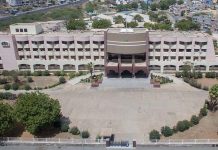Africa-Press – Cape verde. The Board of Executive Directors of the World Bank approved yesterday, 17th, within the framework of Financing for Development Policy (DPF) a package of US$52.5 million in support to Cape Verde. The support aims to contribute to the country being better able to face the impact of the war in Ukraine and to increase resilience to future shocks, particularly those related to the weather.
The operation, according to a press release sent to our editorial office, comprises direct budgetary support of US$42.5 million and a Deferred Withdrawal Option for Catastrophes (Cat DDO) of US$10 million, which can be “quickly disbursed” to respond to a natural disaster, including climate-related and public health shocks.
The objective of the program, guarantees the BM is to support the Government of Cape Verde in strengthening the foundations of an ecological and equitable recovery,
led by the private sector.
“Reform Agenda”
Eneida Fernandes, Resident Representative of the World Bank for Cape Verde, says that, as Cape Verde is recovering from multiple crises (the COVID-19 pandemic, five consecutive years of drought and the crisis in Ukraine) it is time to seize “the moment to embark on an ambitious reform agenda”.
This “operation”, according to that official “supports political action to lay the foundations for economic recovery, reducing fiscal risks and improving debt transparency, strengthening the resistance of poor and vulnerable families to climate-related shocks and allowing a recovery sustainable and climate-resilient, led by the private sector”.
This is the second “operation” of a series of two, which is based on the first DPF, and is aligned with the Strategic Plan for Sustainable Development (PEDSII) 2022-2026.
Economic and social impacts
It should be recalled that the DPF reforms include measures to strengthen the risk management of Public Companies, increase the frequency and quality of debt reports and reinforce the fiscal risks associated with catastrophes and climate-related shocks.
According to the BM, the DPF will also help to reinforce the social protection system, supporting the continuous use of safety nets, improving the usability of the social register and the adaptability of financing mechanisms to respond to covariable shocks, expanding the criteria National Emergency Fund eligibility criteria, to respond to droughts and incorporating lessons learned from the early response to COVID-19.
It also promotes socially and environmentally responsible investment, supporting reforms in the electricity sector to attract private investment, promoting harmonised, streamlined and more predictable regulations for a climate-resilient tourism sector, and developing the regulatory framework for aquaculture.
Taken together, the reform program supported by the “operation” is expected to have positive effects on poverty reduction, with positive social and environmental impacts, and increase the economy’s resilience to external shocks.
For More News And Analysis About Cape verde Follow Africa-Press






